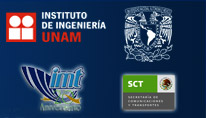



| Sponsors |
The National Autonomous University of Mexico, (UNAM) is the most important Mexican university and was founded in 1551 by the Royal Decree signed by Charles V, Holy Roman Emperor in Valladolid, Spain. Originally named Real Universidad de la Nueva España, is the second oldest university in the Americas just behind the Autonomous University of Santo Domingo.
UNAM is the largest university in Latin America and it was ranked the best in Latin America, Spain and Portugal according to a study conducted by The Times some years ago. A study by the Beijing University also considered UNAM to be the best university in the region and most important university in the Spanish-speaking world.
UNAM is formed by independent schools (facultades) rather than departments, where both undergraduate and graduate studies are available. UNAM is also responsible for the Escuela Nacional Preparatoria and the Colegio de Ciencias y Humanidades, a high-school level system consisting of several campuses spread around Mexico City. Including these high-school level, undergraduate and graduate students, UNAM has over 269,000 students, making it one of the world's largest universities.
UNAM is the only university in Mexico with three Nobel Laureates among its former students: Alfonso García Robles (Peace), Octavio Paz (Literature), and Mario Molina (Chemistry). Some argue, however, there is a fourth Nobel Prize awarded to a UNAM member: Ana María Cetto was awarded the 1995 Nobel Peace Prize as a member of the Pugwash Conferences and the 2005 Nobel Peace Prize as a member of the IAEA.